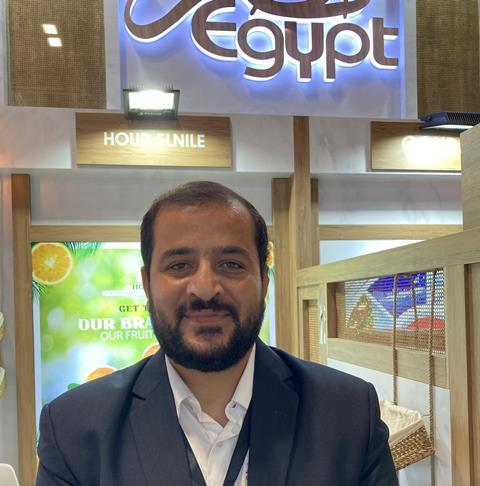The strength of demand for Egyptian citrus has come as a surprise to some exporters, particularly from Egypt’s main competitor, Spain
Interest in Egyptian oranges from Europe has been soaring, according to Osama Saleh, commercial manager at grower-exporter Houd ElNile, including from Spain.

Perhaps that should come as little shock now that Egypt stands as the world’s largest exporter of oranges, but it certainly marks a break from the norm.
“We started sending there last year,” said Saleh. “It was a surprise that Spain was coming to us for Egyptian oranges. Our company sent 1,300 tonnes out of around 10,000-15,000 tonnes from Egypt. Now everyone is demanding more for next season, so maybe next year it will be even bigger.”
The reason for Saleh’s surprise is that Spain is Egypt’s main competitor. “It’s not a target market for us,” he admitted, “but everything is changing.”
Last year, Egyptian producers even faced issues with small sizes, but that did not diminish demand. “This season we will have more large-sized oranges again, so we believe the next campaign will be a good one for us,” concluded Saleh.
Houd ElNile also grows and exports mangoes, with multiple new varieties now coming out of Egypt. “Every year, we are growing new varieties,” said Saleh. “Demand is growing for mangoes all over the world, in Europe, Russia, the Black Sea area, the Middle East – everywhere.”
And unlike many countries in the region, Egypt appears to have avoided any big impacts from climate change, at least thus far.
“Last summer, temperatures were higher than normal, but not like in Saudi Arabia where they have 50C-plus sometimes,” said Saleh. “We had highs of 42C. That is not usual for us, but we have not seen unusual rainfall like in many countries. In general we are not experiencing big changes from climate change. Up to now we have not had big issues.”
Any advantage is of course welcome, and the location of the company’s farm and packhouse, accessible from Cairo airport in just 35 minutes, is no different. “That is our luck,” said Saleh. “When customers visit Egypt, they come to us first.”



